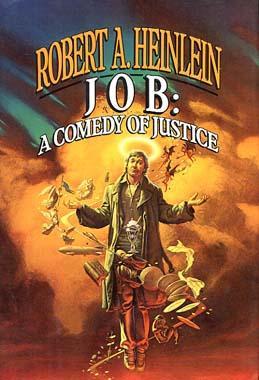I can find dozens of human derelicts and even human criminals who have tons more compassion and would offer more merciful justice than "Bible God" does.
Curse God. And die.
Then the LORD answered Job out of the storm. He said:
2 "Who is this that darkens my counsel
with words without knowledge?
3 Brace yourself like a man;
I will question you,
and you shall answer me.
4 "Where were you when I laid the earth's foundation?
Tell me, if you understand.
5 Who marked off its dimensions? Surely you know!
Who stretched a measuring line across it?
6 On what were its footings set,
or who laid its cornerstone-
7 while the morning stars sang together
and all the angels [a] shouted for joy?
8 "Who shut up the sea behind doors
when it burst forth from the womb,
9 when I made the clouds its garment
and wrapped it in thick darkness,
10 when I fixed limits for it
and set its doors and bars in place,
11 when I said, 'This far you may come and no farther;
here is where your proud waves halt'?
12 "Have you ever given orders to the morning,
or shown the dawn its place,
13 that it might take the earth by the edges
and shake the wicked out of it?
14 The earth takes shape like clay under a seal;
its features stand out like those of a garment.
15 The wicked are denied their light,
and their upraised arm is broken.
16 "Have you journeyed to the springs of the sea
or walked in the recesses of the deep?
17 Have the gates of death been shown to you?
Have you seen the gates of the shadow of death [b] ?
18 Have you comprehended the vast expanses of the earth?
Tell me, if you know all this.
19 "What is the way to the abode of light?
And where does darkness reside?
20 Can you take them to their places?
Do you know the paths to their dwellings?
21 Surely you know, for you were already born!
You have lived so many years!....................................
The LORD said to Job:
2 "Will the one who contends with the Almighty correct him?
Let him who accuses God answer him!"
3 Then Job answered the LORD :
4 "I am unworthy—how can I reply to you?
I put my hand over my mouth.
5 I spoke once, but I have no answer—
twice, but I will say no more."
6 Then the LORD spoke to Job out of the storm:
7 "Brace yourself like a man;
I will question you,
and you shall answer me.
8 "Would you discredit my justice?
Would you condemn me to justify yourself?
Not I-BTS
